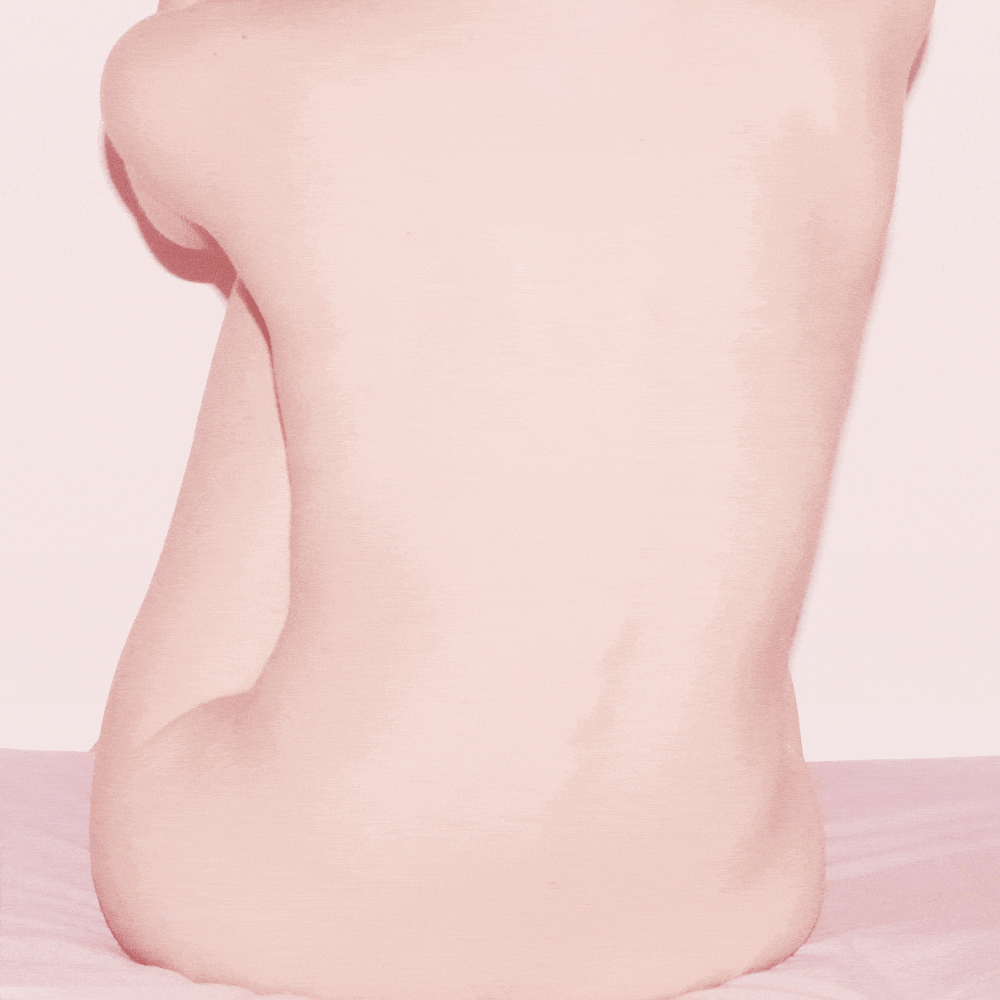9 Crazy Things You Never Knew About Your Body

You already know a ton about your body—you live with it, after all. But there are a lot of fun facts that you’d never pick up, and your sex ed teacher never told you (or, more likely, never knew). Here are nine that blew our minds. Feel free to take notes.
1. You’re born with millions of eggs—all you’ll ever have in your lifetime.
You actually started out with 6 to 7 million when you were a banana-sized, 20-week-old fetus chillin’ in your mama’s womb. But from there, your stock of oocytes naturally declined...a lot. At birth, baby girls have 1 to 2 million eggs; at puberty it’s closer to 400,000. By age 37, there’s still plenty—about 25,000. Even at menopause, around age 51, women can have 1,000 left, according to the American College of Obstetrics and Gynecology.
2. Your left boob is probably bigger than your right.
Think of your girls as sisters, not twins. Multiple studies show that asymmetry is super common, and that Leftie is usually the plumper of the two. One study in the Annals of Plastic Surgery found that’s the case for 62 percent of women.
The difference is usually slight—and probably invisible in a bra, TBH—but for about 10 percent of women, it can be more pronounced, the researchers report.
3. You’ve got (healthy) bugs in your vagina
Put down the kombucha and read this: While everybody’s talking about your gut’s microbiome, probiotics, and how the balance of bacteria in your GI tract impacts everything from your bathroom habits to immune system to mood, a whole ecosystem of good bugs in your vagina is just doin’ its thing.
What's that, exactly? They produce lactic acid to maintain the trademark low pH environment, making the space about as hospitable for bad bugs as Fyre Fest was for influencers. In fact, research has shown that a healthy balance of vaginal microbes can ward off STIs, yeast and urinary tract infections, and bacterial vaginosis.
4. Women’s muscles are badass.
Dudes may be physically stronger, but all that raw power is pretty fleeting. On the other hand, your muscles stay strong longer and recover faster. Yep, when matched for strength, women’s muscles don’t fatigue as quickly as men’s; they’re naturally built for endurance and with kick-ass stamina, reports studies in the journals Dynamic Medicine, Applied Physiology, Nutrition, and Metabolism, and others.
5. Sexy time once or twice a week gives your immune system a boost.
Hanging out in your saliva and in the lining of your nose and other airways, you’ve got “soldiers” called IgA antibodies. They attack cold and flu bugs when you’re first exposed, then alert the rest of your immune system’s cavalry. Researchers at Wilkes University in Pennsylvania found that people who have sex one or two times a week had 30 percent higher levels of these germ-fighters than those who did it less often or not at all.
6. Sperm can live for up to 5 days in your reproductive tract.
In the few days before ovulation, conditions are as primo as a four-star resort, which helps keep sperm alive and swimming. Specifically, your cervical fluid turns wet, creamy and white, then clear, slippery, and stretchy. Still, only a small amount of the millions of sperm released during ejaculation will make it all the way up to your fallopian tubes. But to get pregnant, it only takes one healthy guy chillin in there to meet a just-released egg.
7. You lose less blood than you might think during your period
Even though it might seem like you’re dealing with a crime scene—especially during certain parts of your period, since you may bleed more heavily on specific days—most women typically lose only 1 ½ shot glasses or 4 tablespoons of blood total over the course of all your menstruating days, according to the National Institutes of Health. If, however, you bleed so much that you soak through pads or tampons after just an hour or two, see your gyno; super heavy periods may signal hormonal or other problems.
8. Nipplegasms are a real thing
Your boobs aren’t just for foreplay—some women report they’ve been able to orgasm via just nipple stimulation, and there’s actually science behind it. A study published in the Journal of Sexual Medicine used MRI imaging to look at how the brain reacted to stimulation of different parts of the body. It found that nipple play lit up the same part of the brain (the genital sensory cortex) as when your vagina and clitoris see action.
9. Period cramps affect your brain
We all know cramps suck—period. But they’re not only a pain in the uterus. The discomfort may temporarily distract you and mess with your brain’s ability to work at its full boss potential, suggests a study published in the aptly named journal Pain.
Researchers put women through a few cognitive tests measuring attention span, selective and divided attention, and attention switching, and found that cramps put a damper on how fast and accurately they completed the tests compared to when they were pain-free. Bottom line: If bad PMS is, ahem, cramping your style, stock up on ibuprofen and make an appointment with your gyno STAT.
You Might Also Like

